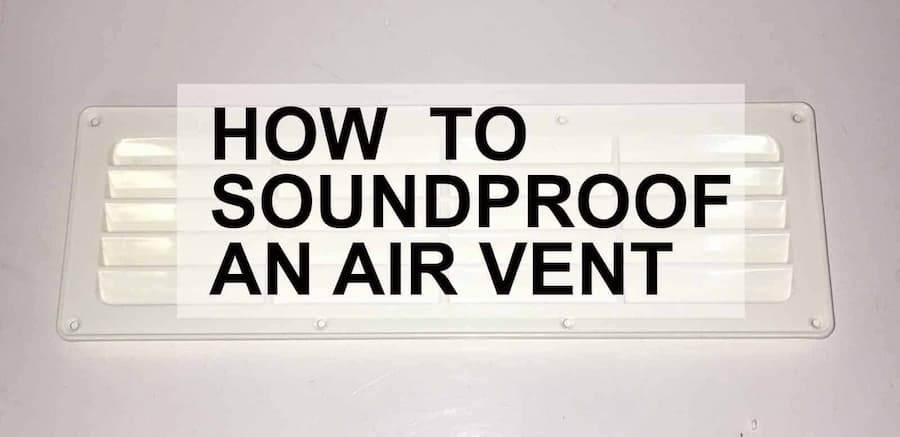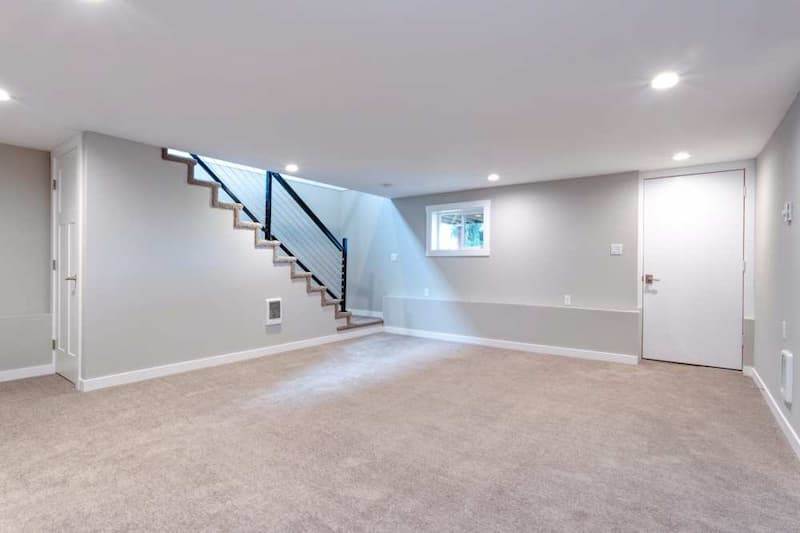How to Soundproof a Pipe: Complete Guide
Pipes are an essential component of every home, but they can be rather loud. It’s not difficult to soundproof a pipe, whether you’re installing something like a home theater or just have loud pipes.
Noise pollution, in addition to being inconvenient, may contribute to increased stress and irritation if left unaddressed. Fortunately, to soundproof a pipe is a practical and cost-effective solution to this problem. We’ll go over all you need to know about how to soundproof a pipe in order to reestablish a quiet ambience in your house in this article. Continue reading to learn more about why your water pipes are making noises and what you can do about it!

Why Do Drain Pipes Become Noisy Over Time?
There are two types of noise that people think of when they think of loud drain pipes. To many, it is a persistent noise that they hear on a daily basis, and they may wish to finally address it. This indicates that there isn’t really anything wrong, but it’s simply too easy to hear the noise of draining water every time the pipes flow. Then there’s the noise that appears out of nowhere. When a drain pipe gets extremely loud all of a sudden, something is most certainly wrong with it. The sooner everything is examined, the quicker it is to figure out a solution.
The pipe might be leaking or damaged, or it could just be bumping up against neighboring pipes. Regardless, releasing these louder noises out of nowhere risks exacerbating the problem. Pipes, like anything else, require regular repair, so be as proactive as possible while dealing with noise. It might simply be a matter of tightening loose pipes or relocating something that the pipe rubs against when in use.
Here, we’ll look at a couple of the loud pipe options. Before making any alterations to your house or adding pipe sound insulation, it’s critical to determine the source of the noise. Pipe noise can be created by any of the following factors, regardless as to whether your water pipes are constructed of plastic, copper, iron, or steel.
| 1. Water Hammer | The phrase “water hammer” refers to the banging noises that occur when a valve on a high-pressure water line closes. When you swiftly shut off a faucet or an appliance abruptly closes a water valve, you may hear a water hammer. Consider your washing machine as an example. When you do laundry to your laundry room, your washing machine immediately fills with high-pressure water that flows through a pipe. The water valve unexpectedly closes as the washing machine fills up, leaving the water with nowhere to go. As a result, the high-pressure water may smash against the pipes, causing them to shift and bang against the wall or adjacent pipes, creating a noise. |
| 2. Copper Pipes | If your water pipes are copper, you may hear ticking sounds when you use hot water. This is due to the fact that hot water causes copper pipes to grow and collide with other pipes or other things. Once the pipes have cooled, they will compress and make a cracking sound. You might try to decrease copper pipe noise by lowering the water heater’s thermostat. |
| 3. Loosen Pipes | Due to water pressure, weakly connected pipes can shake and make banging noises. By fastening pipes with straps or tightening loose straps, or covering pipes with insulation, you can minimize noise. |
Video: Are Your Water Pipes Making Noises?
The Best Pipe Soundproofing Materials
To assist you in getting started on your pipe soundproofing project, we’ve compiled a list of the finest soundproofing materials to use in your house to reduce the sounds of loud pipes. We have included instructions on how to soundproof a pipe using the supplies listed below.
1. Acoustic Lagging  |
Acoustic lagging is ideal for noise reduction because of its capacity to absorb sound and provide a cushioned barrier against the wall hollow. To put this together, you’ll need a tape measure to obtain the measurements of the pipe or pipes you want to soundproof. After that, cut the acoustic lagging to size and attach it to the pipe in numerous parts until it is completely covered. Related: Explaining Noise Reduction Coefficient (NRC) |
2. Spray Foam Insulation  |
Consider spray foam insulation for your pipes as a quick and inexpensive repair. Although not as efficient as acoustic lagging at reducing noise, it works well for low-moderate sounds. Furthermore, it enhances house insulation by maintaining a more consistent temperature. To use it, simply spray the pipe’s whole surface with the spray. The substance will thicken as it dries, muffleing any sound generated by pipe movements. |
3. Mass Loaded Vinyl  |
Mass loaded vinyl is a thick, flexible, and huge material that lowers noise substantially. By stopping sound waves from traveling through it, it acts as a physical soundproof barrier. The installation procedure is similar to that of acoustic lagging, in which portions of the material are cut out and glued around the pipe to be soundproofed (more about MLV on soundproofguide.com). |
4. Acoustic Pipe Wraps  |
Heat resistance and noise reduction are also features of an acoustic pipe wrap. It’s not as efficient as heavy-duty soundproofing materials, but it may still provide excellent sound insulation, similar to spray foam insulation. They’re a good choice for anyone who wants to get the work done fast because all you have to do is wrap the material firmly around each pipe. |
5. Drywall or Gypsum Board  |
If your water supply pipes aren’t accessible, adding a layer of drywall or gypsum board with sound dampening material such as foam panels is a possible solution. The inclusion of this layer muffles water transmission and reduces noise within the pipes. Unfortunately, because this needs more sophisticated building abilities and construction expertise, you’ll almost certainly need professional assistance. |
6. Rubber Spacers  |
Rubber spacers are great for dampening the noises produced by sagging PVC pipes. The flanking sound, like we mentioned in our article How to Soundproof An Air Vent, are minimized by attaching them to the connections of connected water pipes since the rubber absorbs the vibration. Rubber spacers also help to keep a running PVC pipe from moving about by ensuring that it is securely secured in place. |
Video: How to Soundproof a Pipe – Tecsound® FT55 AL (Acoustic Pipe Wrap) Installation
How to Make Water Pipes Quiet
It’s time to act if loud pipes keep you awake at night or make you wonder whether an intruder has broken in. Noise may make a house feel less welcoming, but the great news is that this does not have to be the case. You have two primary options when it comes to soundproofing your water pipes. You can either cover the pipes in noise-reducing materials or fill the spaces surrounding them with sound-absorbing materials.
1. Wrap the Pipes with Tapes
Soundproofing pipes with a soundproofing substance will reduce noise and vibrations. To mute the noise of expanding and contracting because of the temperature fluctuations, you could wrap noisy copper pipes, for example. Follow these steps to wrap noisy pipes with tape:
| Step 1 | Make sure the pipe is clean and clear of debris or dust. To figure out how much material you’ll need, measure the length of the pipe. Using a utility knife, cut the pipe sound insulation to the desired size, or cut the material as you roll it around the pipe. |
| Step 2 | Begin at one of the pipe’s ends. Remove 4 to 5 inches of the blue peel-and-stick backing by peeling back the border. To ensure adequate adhesion to the pipe, hold the material at a little slant and press firmly. |
| Step 3 | Peel the peel-and-stick backing off the pipe as you go, pushing hard. If the material wrinkles, simply trim it and start over, repeating the procedures above until the pipe is completely covered. |
You may reduce noise and the risk of pipes freezing in the winter by putting sound-deadening insulation around your pipes.
Video: How to Soundproof a Drain?
2. Fill The Wall Cavity
The structure of the building where the pipe is placed may limit your options for soundproofing a pipe. It is not always possible to gain direct access to the pipe in order to cover it with soundproofing wrap. People may have been hesitant to try to muffle pipe noise by filling wall cavities in the past since the available insulation didn’t always fit the space well and had an unfavorable chemical makeup.
3. If Everything Else Fails, Seek Assistance!
Most individuals who are looking for information on how to soundproof a pipe want DIY soundproofing. As long as nothing is physically incorrect with the pipe, soundproofing is a pretty straightforward remedy for the majority of individuals. It’s a really simple technique, and with the appropriate materials and a little bit of effort, one can get some decent results.
If things start to become a bit too difficult, don’t be hesitant to seek help from a professional. When installing new material or making adjustments to the pipe in general, it’s critical to use caution. Most individuals believe they could do the task on their own, but it never hurts to seek more assistance.
Plastic pipes, on the other hand, require a little more upkeep over time. However, most specialists would charge much less for replacing or repairing plastic pipes, which is a plus. If a professional comes out to look at your home, make sure to inquire about any soundproofing options they may have (which plastic pipe is more reliable: PEX or CPVC? – read on plasticexpert.com).
In Conclusion
If you want to enjoy some peace and quiet in your house, soundproofing pipes is absolutely worth the effort. The most essential thing to remember is that loud pipes might indicate a larger issue, so be sure this is the case before you start covering them up.
It’s also worth noting that similar soundproofing principles apply to heat insulation, so soundproofing your pipes might result in a more effective heating system as well. Just keep in mind that this project may get rather big, so make sure you have everything you need before you begin.



